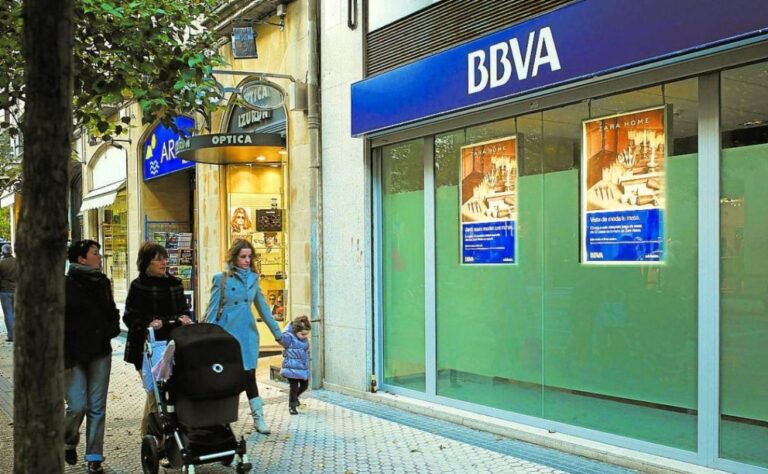Introduction to BBVA
BBVA has been a prominent player in the banking sector, known for its innovation and customer service. However, https://finanzasdomesticas.com/el-ere-de-bbva/ recent developments have sparked conversations across the financial landscape. With an upcoming ERE (Expediente de Regulación de Empleo), many are left wondering how this decision will impact not only the employees but also the future of the company itself.
The landscape of employment is shifting, and BBVA’s choices could serve as a bellwether for other institutions grappling with similar challenges. What does this mean for job security in an ever-evolving industry? Let’s delve into what’s happening at BBVA and uncover the reasons behind their decision to move forward with an ERE.
What is an ERE?
An ERE, or Expediente de Regulación de Empleo, is a legal process in Spain that allows companies to reorganize their workforce. This can lead to temporary layoffs or permanent job losses.
The aim of an ERE is often financial stability. Companies facing economic difficulties may resort to this measure as a way to reduce costs and streamline operations. It’s not just about cutting jobs; it involves negotiations with labor representatives.
During the process, affected employees are usually provided with compensation packages. However, these measures can create uncertainty and anxiety among staff members.
An ERE also requires compliance with various regulations set by the government. This includes notifying authorities and consulting employee representatives before implementing changes.
Understanding the nuances of an ERE is crucial for both employees and employers navigating through challenging times in the corporate landscape.
Reasons for BBVA’s ERE
BBVA’s decision to implement an ERE stems from various strategic considerations. The bank has faced significant changes in the financial landscape, necessitating a shift in operations.
One prominent factor is digital transformation. As technology evolves, traditional banking practices become outdated. BBVA aims to streamline its workforce and invest more heavily in digital tools and services.
Economic pressures also play a crucial role. Market volatility and regulatory challenges have forced the institution to reassess costs. Reducing personnel allows for better resource allocation while maintaining competitiveness.
Additionally, BBVA is adapting to changing customer behaviors. Increased demand for online banking solutions means reconfiguring staff roles rather than maintaining conventional positions that may no longer be essential.
These elements combined create a compelling case for restructuring through an ERE, even as it poses challenges ahead for both employees and management alike.
Impact on Employees and the Company
The ERE at BBVA has stirred significant concern among employees. Many face uncertainty about their future roles and job security. This anxiety can lead to decreased morale, affecting overall productivity within the organization.
For those who remain, work dynamics may shift dramatically. Colleagues departing can create gaps in teams, leading to increased workloads for others. These changes might strain relationships and disrupt communication.
On a broader scale, the company risks losing valuable talent and institutional knowledge. The departure of long-standing employees could impede ongoing projects and client relationships.
Additionally, public perception plays a crucial role in banking. Customer trust might waver if they view BBVA as unstable or unsupportive of its workforce during challenging times. The ripple effects of such actions could have lasting implications on the bank’s reputation in the industry.
Criticisms of the ERE
The ERE proposed by BBVA has faced significant backlash from various groups. Critics argue that the layoffs disproportionately affect lower-level employees, who often have fewer resources to navigate job loss.
Labor unions have voiced their concerns over a lack of transparency in the decision-making process. Many feel sidelined and believe that alternatives were not thoroughly explored before resorting to an ERE.
Additionally, some analysts question whether this move truly aligns with BBVA’s long-term strategy. The bank’s image as a stable employer may suffer if public sentiment turns negative.
Social media platforms buzz with discontent as employees share personal stories and fears about uncertain futures. As discussions unfold, it becomes evident that these criticisms represent more than just numbers on a spreadsheet; they reflect real lives impacted by corporate decisions.
Future Implications
The future implications of BBVA’s ERE extend far beyond immediate layoffs. As the bank restructures, it may redefine its operational strategies and customer engagement methods.
Investments in technology could take precedence, leading to an increased focus on digital banking solutions. This shift might enhance efficiency but also change the nature of job roles within the organization.
Moreover, employee morale is likely to fluctuate as remaining staff navigate a transformed workplace landscape. The culture at BBVA may evolve, impacting collaboration and innovation.
Market perception will also play a crucial role in shaping BBVA’s trajectory post-ERE. Stakeholders will closely monitor how these changes affect client trust and loyalty moving forward.
In this rapidly changing financial environment, adaptability becomes essential for both employees and management alike. Embracing new methodologies while maintaining core values will be vital for sustainable growth.
Conclusion
The recent decision by BBVA to implement an ERE has sparked significant discussion across various platforms. As the bank adapts to changing market conditions and strives for greater efficiency, https://finanzasdomesticas.com/el-ere-de-bbva/ understanding the implications of this move is crucial.
The impact on employees cannot be understated. Several individuals face uncertainty about their job security and future prospects within the company. The emotional toll of such decisions extends beyond just those directly affected; it resonates throughout teams and departments.
Critics have raised valid points regarding transparency and communication during this process. Many argue that more could be done to support employees transitioning out of the organization, emphasizing a need for compassion in these challenging times.
Looking forward, it will be interesting to see how BBVA navigates its restructuring efforts while maintaining morale among remaining staff. Balancing operational needs with employee welfare will undoubtedly shape both immediate outcomes and long-term company culture.
As industry observers keep a close watch on developments surrounding BBVA’s ERE, one thing remains clear: change is often accompanied by challenges but also opportunities for growth and adaptation within dynamic markets.
